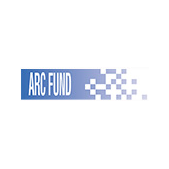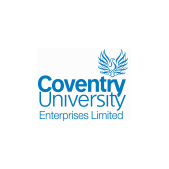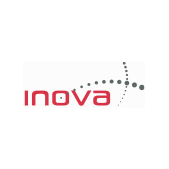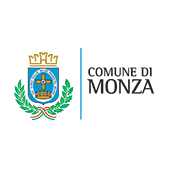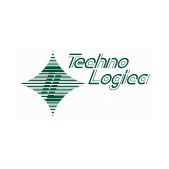Corporate Social Responsibility 2.0 strategies are not only focusing on reducing the negative impact of production, but also on increasing the positive impact of manufacturing through sustainable entrepreneurship, innovation and internationalization.[1] Emmanuel de Béthune[2] (CRB) and Leo Sleuwaegen (KUL) investigated in the Belgian food industry to what extent such CSR strategies are combined with the idea and the principles of ‘Creating Shared Value’[3].
Creating Shared Value (CSV) emerges from the literature as a strategy of successfully combining corporate social responsibility, sustainability and competitiveness. Four food companies, Alpro, Belvas[4], Brewery Huyghe[5] and Spadel[6] were selected because of their clear CSR strategy towards securing a sustainable planet for future generations. Alain Delaet, CEO of Brewery Huyghe, says he wants to become the greenest brewery in Belgium in order to deliver a sustainable world to the generation of his son. Marc du Bois states that it is a moral obligation for Spadel to produce natural and sustainable products. There are a lot of challenges in terms of food, our health and a sustainable planet. Being part of the solution is the core of Alpro's vision of sustainability. Thierry Noesen indicates that there is no such thing as ‘half and half’ Fairtrade and Organic. Something can only be Fairtrade or organic if all the conditions are met 100 percent.
In a first phase of the study the question was whether these companies would also strive to create shared value. Second, we analyzed whether companies with well-developed CSV strategies would be more effective and efficient than other companies in tackling societal challenges.
Creating Shared value
Shared value is defined by Porter and Kramer as policies and operating practices that enhance the competitiveness of a company while simultaneously advancing the economic and social conditions of the communities in which it operates. Shared value creation focuses on identifying and expanding the connections between societal and economic progress.[7] Typically, companies involved in shared value creation see societal issues as an opportunity, while generating at the same time profit for themselves. “Porter and Kramer argue indeed that all profit is not equal. Profit involving shared value enables society to advance and companies to grow faster. They predict that incorporating societal issues into strategy and operations is the next major transformation in management thinking. “[8]
Porter and Kramer describe three distinct ways to achieve this: reconceiving products and markets, redefining productivity in the value chain, and building supportive industry clusters around the company. Shared value creation requires an iterative process that is integrated with the business strategy. The integrated shared value strategy and measurement process usually consists of four steps[9]:
- Identify the social issues to target
- Make the business case
- Track progress
- Measure results and use insights to unlock new value.
In our research project we added the preposition that aiming at creating shared value also strengthens the social capital of a company, which in turn strengthens the commitment of employees and raises productivity and sustainable innovations. The four companies studied indeed apply their sustainable development strategy very rigorously and in a structured way. The implementation method used is also very consistent and implemented through the four step iterative process described.
Each of the four companies has a clear approach to identify the social issues to target. In all cases a well-organized societal dialogue with the stakeholders of the company appears to be an important source of identification of societal issues to address. In a second step, the most relevant social issues are translated into business cases, which are further developed when they promise to deliver a sufficient return on investment. In this phase societal issues are transformed into creative projects which center on reconceiving products and markets, redefining productivity in the value chain, and/or building supportive clusters around the company.
For instance, Alpro managed to expand its offering of plant based products to include new products based on coconut, almonds and hazelnut milk. This was completely in line with the mission statement of Alpro, which is “Changing the way the world eats for the better by creating delicious, naturally healthy plant-based foods, for the maximum wellbeing of everyone and with the utmost respect for our planet”. In the same way, Huyghe heavily invested in the modernization of production infrastructure and in water treatment, leading to very important savings of energy and raw materials. Belvas was one of the first companies that managed to successfully produce high quality gluten and GMO free chocolate. Despite the risks in terms of loss of visibility, Spadel did not hesitate to replace its well-known red bottle by a transparent one in order to reduce the carbon content of its production and to optimize recycling in co-operation with Fost Plus.
In a third step, all companies keep track of changes using a variety of monitoring systems. To this end, Alpro uses a Balanced Score Card system, while Spadel is monitoring its progress through its Global Reporting Initiative (GRI). Belvas is monitoring closely every aspect of its business in line with the Fair Trade and Bio label, the Emas certificate and the BRC standard.
Finally, all companies use the monitoring data on an ad hoc basis to identify new opportunities and unlock new value. However, the four companies could probably unlock even more new value if the monitored data were coupled with a structured and organized forward-looking system.
A strong involvement of stakeholders.
In addition to customers and suppliers, academic and other institutions, municipalities, neighbourhoods, NGOs and off course employees play an important and growing role as a source of information in a CSV strategy. This requires from CSV-oriented companies a very creative and innovative behavior, supported by clear company values which stimulate openness off all employees toward the companies’ environment and its stakeholders. Whereas the reviewed companies maintained at first well established contacts with a variety of stakeholders, just to attract their input on societal issues, they now have to respond to the stakeholder’s (mainly NGOs) demand for more involvement in the strategy development in return for cooperation. We noticed the important role played by the WWF in strategy building at Alpro, the framework Max Havelaar and Certysis provide to Belvas, the well-developed interaction between Fost Plus and Spadel, and the good relationship between Brewery Huyghe and its neighborhood and the municipality. These examples show that stakeholders are more and more participating in the development of business plans and in the management and assessment of those plans.
Nevertheless, the approach to strategy development within the analyzed companies is still pretty much top-down. The companies are trying to develop a more bottom-up approach that involves stakeholders in the whole strategic process because this will help to unleash all the potential to create shared value. In the end the ideas on how to tackle societal issues through new business models and sustainable innovations, will more often be provided by an open collaboration between stakeholders and in particular employees from all over the company departments. Applying a more bottom up approach will generate a large employee support for the company mission and strategy. The result is a strong social capital, leading to an even stronger motivation and commitment of the employees to the strategic goals, spurring sustainable innovations. The larger companies also perceived that a more intense dialogue with the unions on strategical and sustainable issues could support the development of social capital in the same way.
But CSV oriented companies are in addition perceived as being more attractive by young potentials and professionals of all ages. The idea of creating shared value is appealing to people who want to earn money while also making the world a better place. The reviewed companies testified that the fact that their strategy of creating shared value gives them an advantage in the war for talent for high skilled employees. In our analysis we also noticed that the turnover and the absenteeism was on average lower than in similar companies, in particular for the high skilled workforce.
CSV and CASI
The design of well-structured CSV-strategies can be an important step to create Common or Shared Frameworks for Assessment and Management of Sustainable Innovations, as is developed in the CASI project. We consider four conditions for a successful framework:
- First, a Framework for Assessment and Management, should be well structured.
- Second, a framework becomes common when it is shared between a large number of companies.
- Third, an effective framework needs to address relevant issues.
- Finally, such a framework will need to be shared with all stakeholders of the company, to acquire relevant information and support for the actions to be taken.
Given these conditions, and the evidence we collected, we see value in using the CSV approach as a basic element for the development of a well working Framework for Common Assessment and Management of Sustainable Innovations.
[1] DENIS, Sabine & LEYSSENS, David. (2015), «Evolutie van Maatschappelijk Verantwoord Ondernemen: van winst naar waarde», ECONnect, SEP.OKT.NOV2015, 3de jaargang, p25, 1p
[2] Contact: Emmanuel de Béthune: embe@ccecrb.fgov.be
[3] The research project is called research project: “Sustainable Development as a Driver of Competitiveness in the Food Industry”
[4] VAN TICHELEN, C., de BETHUNE E. et SLEUWAEGEN, L., (2016), “Etude de cas: Belvas”, CCE.
[5] RENDERS, S., de BETHUNE E. en SLEUWAEGEN, L., (2016), “Case Studie: Brouwerij Huyghe”, CCE.
[6] BEN ADBOUD, E., de BETHUNE E., VAN TICHELEN, C., DE VOLDERE, I. et FERDINAND, C., (2016), “Etude de cas: Spadel”, CCE
[7] PORTER Michael & KRAMER Mark (2011), « Creating Shared Value », Harvard Business Review, Jan/Feb2011, Vol. 89 Issue 1/2, p62-77, 16p
[8] MOORE, Carol (2015), « Corporate Social Responsibility and Creating Shared Value: What’s the difference?”, Heifer International, May 2015, 6p.
[9] PORTER, M., G. HILLS., M. PFITZER e.a. (2012), “Measuring Shared Value: How to Unlock Value by Linking Business and Social Results”, FSG, 20 blz.
Relevant themes:
Sustainable innovation, Environment
Relevant tags: Sustainability



